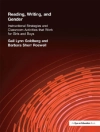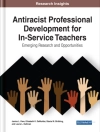How do we get at the meanings of everyday (and not so everyday) objects, and how might these meanings enrich educational research? The study of objects is well established in fields such as archaeology, art history, communications, fine arts, museum studies, and sociology—but is still developing in education. Object Medleys: Interpretive Possibilities for Educational Research brings together 37 educational researchers from wide-ranging contexts and multiple knowledge fields to a dialogic space in which subjects and objects, living and nonliving, entangle as medleys to open up understandings of connections made with, between, and through objects. Object Medleys offers diverse, innovative modes and lenses for representing, interpreting, and theorising object studies. The book is distinctive within scholarship on object inquiry in that much of the research has been conducted within Southern African educational contexts. This is complemented by contributions from scholars based in Canada and the United Kingdom. The original research represented in each peer-reviewed chapter expands academic conversations about what counts as data and analysis in educational research. Overall, Object Medleys illuminates the applied and theoretical usefulness of objects in response to pressing educational and societal questions. “Object Medleys is a rich and fascinating exploration of new possibilities, with potential for research, teaching, and learning that seems almost unlimited. This book is a rich assembly of affordances for exploring and widening the role of objects in educational research. It relocates attention from language and text towards embodied and material storytelling practices where new and marginalised ways of expression can find their ways into classrooms, thereby opening completely new avenues of teaching and learning.” – Kenneth Mølbjerg Jørgensen, Professor, Aalborg University, Denmark “In a time when materiality is being brought at the centre ofcritical inquiry in the social sciences and humanities, this edited collection offers unique insights into the relationship between objects, subjectivities, and learning. Beautifully written and cogently argued, the book breaks new ground by casting a critical spotlight on artefacts that might appear mundane at first sight but, on closer inspection, reveal complex patterns of educational potential.” – Tommaso M. Milani, Associate Professor, University of the Witwatersrand, Johannesburg, South Africa
表中的内容
Acknowledgements; List of Figures; Composing Object Medleys; Part One: Object Memoirs; Object as Subject: Productive Entanglements with Everyday Objects in Educational Research; Dialogic Objects: Material Knowledge as a Challenge to Educational Practice; Not Just an Object: Exploring Epistemological Vantages in Postcolonial Thinking; Part Two: Object Beginnings; The Vanda, the Rose, and the Baobab: Inspirational Display Objects as Fertile Sites for Opening up Narratives of Teacher Researcher Professional Identities; A Stove, a Flask, and a Photograph: Learning Together through Object Inquiry in Self-Study Research; From a Crutch to a Bus: Learning about Educational Leadership Research and Practice through Referencing and Mapping of Objects; A Tin Bath, a Cooking Pot, and a Pencil Holder: Object–Self Dialogue in Educational Research; Spontaneous Shrines and the Studio Desk: Learning from Working with Objects through an Arts-Informed, Practice-Led Lens; A Microscope, a Stone, a Cap, and a Lampshade: Objects as Conduits for Recognising Teaching Practices as Teacher Leadership in Higher Education; Mount Merapi and the Trencadís Bench: Negotiating Personal–Professional Identities through Working with Photographs as Treasured Objects; Shoes, Suitcases, Stones: Creative Engagement with Ourselves as Artist–Researcher–Teachers through Object Inquiry; A Religious Object Medley: Objects as Signifiers of the Values, Beliefs, and Practices of Servant Leaders; About the Contributors; Index.












